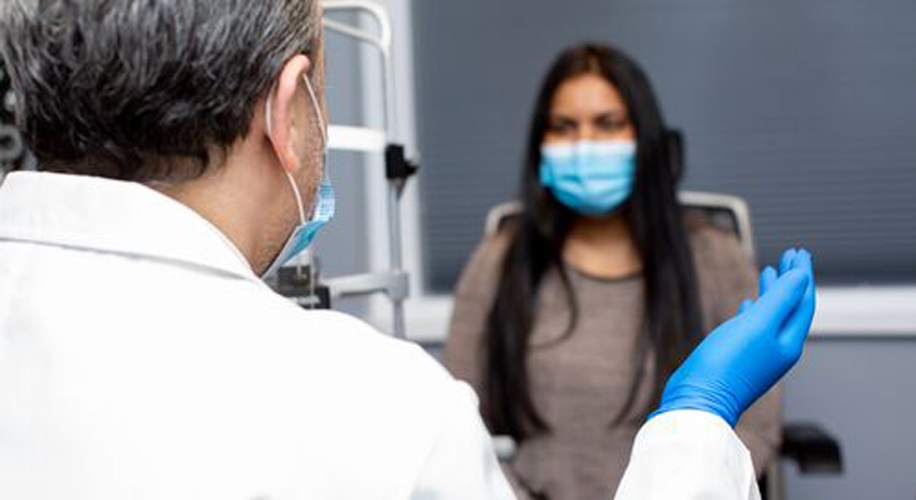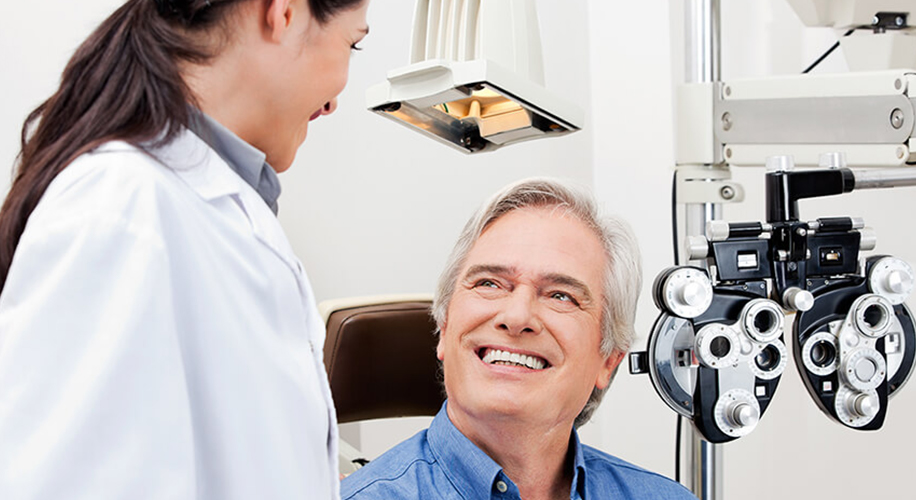Don’t Skip Your Routine Eye Exams

Routine Eye Exams are Essential
Have you postponed or cancelled your eye exam over the past several months? If so, you’re not alone. Many of us have been hesitant to go into our eye doctor’s office to have our eyes checked. We want to assure you that it’s simple to keep yourself healthy and safe while getting your eyes examined. In fact, it’s essential.
Whether or not you wear prescription glasses or contacts, getting a routine eye exam annually is important for monitoring the health of your eyes and body. An eye doctor can detect any signs of eye disease that can result in significant vision loss and along with signs of certain health conditions, such as high blood pressure, high cholesterol, and diabetes.
 Image source: SUNY college of optometry
Image source: SUNY college of optometry
Safety Standards At The Eye Doctor
When you return for your eye exam, be prepared for your visit to look a little different. Eye doctors want to assure you that they are prioritizing the health and safety of their patients and staff. While walk-in appointments may not be available, many offices are offering other options such as telehealth (phone or video) or curbside pick-up appointments.
So what exactly are they doing to keep you safe while examining your eyes? You can expect there to be more questions around your current state of health and specific health standards will be put into place to keep you and everyone else safe. The entire staff will be wearing masks and gloves, sanitizing all surfaces after each patient, using equipment shields, limiting the number of patients in the office at one time, and much more. If you’re not sure about the safety standards that your doctor’s office has in place, the best thing you can do is ask.
You may have come across companies advertising remote or at-home eye exams. We advise you to take caution. While there is a place for at home consultations and check-ins, there’s no substitute for an in-person comprehensive eye exam with your doctor.
 Image source:health.harvard.edu
Image source:health.harvard.edu
The Typical Eye Exam
For those of you who have never experienced a routine eye exam, the following is a good overview of what to expect from an examination with an optometrist or ophthalmologist – both who are able to check your vision, prescribe glasses, and diagnose eye diseases.
A doctor will first obtain a good history of your eye health. They’ll determine your visual acuity by using an eye chart and then check your eye’s response to light. As a part of the exam, they’ll perform an eye muscle movement test, determine how well your eyes work together, and check your ability to see color and depth perception.
Next they will check the outside health of your eyes for things such as dry eye and allergies. A pressure test, which assists in ruling out any concern for glaucoma, can be done in several ways, but the most common being the air puff test. .
To check the health inside of your eyes, you may be dilated which involves instilling a few drops into each eye. This procedure allows the pupils to temporarily become larger so that they serve as windows to examine the back of the eye. Once the eyes are fully dilated, the doctor will use special instruments to examine the structures in the back of the eye including the retina, blood vessels, and optic nerve. It’s important to note that dilation may cause light sensitivity and blurred vision for 2-4 hours. We recommend that you wear sunglasses until your pupils return back to normal.
 Image source: Perfect Lens
Image source: Perfect Lens
Talk To Your Doctor
Use your time with your eye doctor to discuss changes in your visual workload, such as increased use of digital devices and screens. More screen time equals more blue light exposure, which can lead to eyestrain, headaches, blurred vision, dry eye, and interrupted sleep. Kids more than anyone are noticing these effects as they shift to a new norm of “schooling from home.” Glasses that protect from blue light, such as Zenni Blokz, are great at shielding eyes from these effects. If you do need visual correction, your doctor will give you your eye prescription and PD (pupillary distance) at the end of your visit. Usually this prescription is good for a maximum of 2 years before it needs to be renewed.
Buying New Glasses
You’ll have the option to buy eyewear from the doctor’s optical dispensary or somewhere else if you choose. Buying eyewear online can be fun and easy when using virtual tools, such as Zenni’s 3D virtual try-on, which allows you to find the perfect pair of glasses from the comfort of your home. Most importantly, there’s no need to touch a bunch of frames to determine the perfect fit!
Shop prescription sunglasses and blue light blocking glasses today.


 Canada
Canada